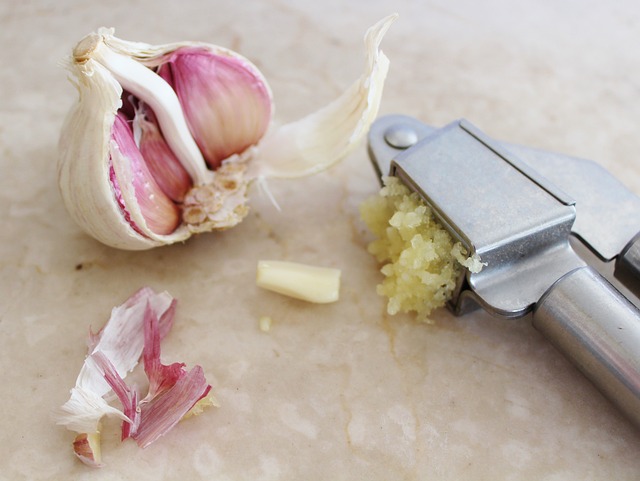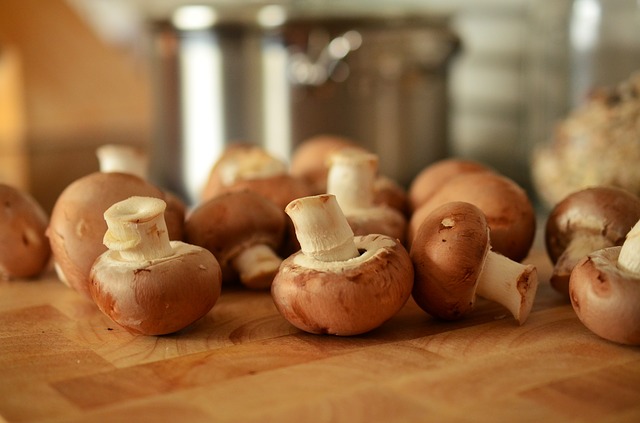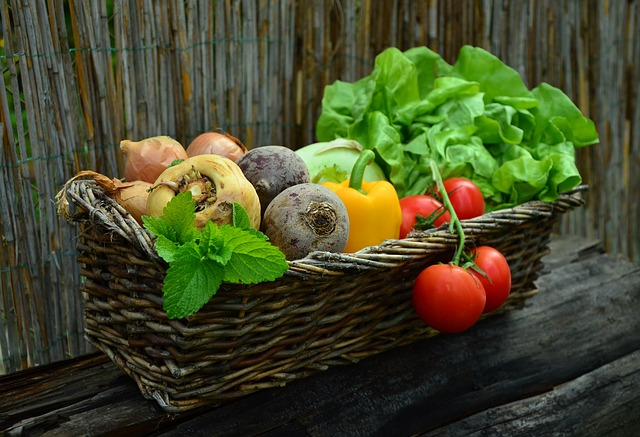Boosting Your Immune System: 6 Things You Need to Be Eating

Do you want glowing skin, boundless energy, and a nearly super-human resistance to germs and viruses?
It’s time to step up your nutritional game! To fight against germs and viruses, we’ve hearing a lot from the media about how we should be rolling up our sleeves to get different shots to boost immunity. Instead of injecting unknown chemicals into our bodies, perhaps we should be focused on immunity-boosting foods that will help our bodies to grow stronger and fight off the bugs naturally.
Let food be thy medicine and medicine be thy food.
~Hippocrates
There are so many wonderful nutritious whole foods out there that it’s almost impossible to list everything. We have listed the most potent ones that are proven to enhances your immune system.
1. Garlic

Garlic contains the chemical compound “allicin”, which can also be found in veggies like onions and leeks to a smaller degree. It also contains beneficial levels of sulfur, arginine, oligosaccharides, flavonoids, and selenium. One study showed that daily consumption of garlic increased subject’s resistance to the common cold by 2/3s and a shorter duration of symptoms for those who did catch a cold.
One hundred forty-six volunteers were randomized to receive a placebo or an allicin-containing garlic supplement, one capsule daily, over a 12-week period between November and February. They used a five-point scale to assess their health and recorded any common cold infections and symptoms in a daily diary. The active-treatment group had significantly fewer colds than the placebo group (24 vs 65, P source)
Simply including garlic in your cooking is a delicious way to reap the benefits. As well, include things like onions, shallots, and leeks in your diet.
2. Mushrooms

Everyone’s favorite fungi offers major immune-boosting power. Dr. Douglas Schar, the director of the Institute of Herbal Medicine in Washington, DC, has spent a great deal of his career studying the effects of mushrooms on the immune system.
In Europe, several mushrooms have been used as panaceas with particular application in the treatment of poisoning, venomous bites, infectious disease, and loss of immune function. They were used to treat conditions that required on an active immune system, whether that was an infectious disease or a bite in which venom was injected into the body. They were called tonics and were used when a person faced what was formerly described as debility or loss of vitality. Today, we know “debility” often results from a failed or failing immune system.
The allopathic medical community often ridicules the lists of traditional uses of medicinal plants. Admittedly, claims that a mushroom was used to treat snake bite, tuberculosis, hepatitis, poisoning, influenza, debility, and rheumatoid arthritis seem a bit incredible. However, there is a common thread to all of these conditions. They are all caused by either a failing immune system or are improved by an active immune system. Many panaceas have in the laboratory proven to be immune system stimulants. This is the case with several European medicinal mushrooms.
For the ethnobotanist, it is interesting to note the use of medicinal mushrooms in Europe parallels the Native American use of Echinacea purpurea. Echinacea purpurea was used to treat rattlesnake bite, insect bite, wounds, burns, and coughs and colds. A list that, again, suggests its proven action on the immune system.
It would appear medicinal mushrooms have been used since the earliest day as medicine in Europe. In 1991, hikers discovered the remains of a man that died 3500 years ago in the Italian Alps. The discovery was well covered by the media though certain key facts were omitted. The frozen man had a medicine bag attached to his person which contained a pair of medicinal mushrooms. (source)
In particular, the Maitake mushroom has been valued medicinally for its antiviral properties, however the edible (and delicious) Enoki and Shiitake mushrooms are also beneficial. They all contain polysaccharides, glycoproteins, ergosterols, triterpenoids. These compounds increase the production and activeness of white blood cells, which work more aggressively to protect you from illness.
3. Organic Fruits and Vegetables

Increasing your consumption of fruits and vegetables will help load up your system with vitamins (like C) and antioxidants. Antioxidants improve the immune system by destroying detrimental free radicals.
Oxygen-derived free radicals are important in both natural and acquired immunity. Neutrophil and macrophage phagocytosis stimulates various cellular processes including the “respiratory burst” whereby increased cellular oxygen uptake results in the production of the potent oxidant bactericidal agents, hypochlorous acid and hydroxyl radical. In addition, nitric oxide, a gaseous radical produced by macrophages, reacts with superoxide to form peroxynitrite, also a potent bactericidal agent. Conversely, oxidative stress may be detrimental in acquired immunity by activation of nuclear factor kappa B, which governs gene expression involving various cytokines, chemokines, and cell adhesion molecules, among others. However, antioxidant supplementation essentially reverses several age-associated immune deficiencies, resulting in increased levels of interleukin-2, elevated numbers of total lymphocytes and T-cell subsets, enhanced mitogen responsiveness, increased killer cell activity, augmented antibody response to antigen stimulation, decreased lipid peroxidation, and decreased prostaglandin synthesis. (source)
By opting for organic fruits and vegetables, you’re getting all of the benefit while not forcing your immune system to fend off the toxic additions of herbicides, pesticides, and GMOs.
Check Eat Local Grown for the other 3 Immune System Boosting Foods





